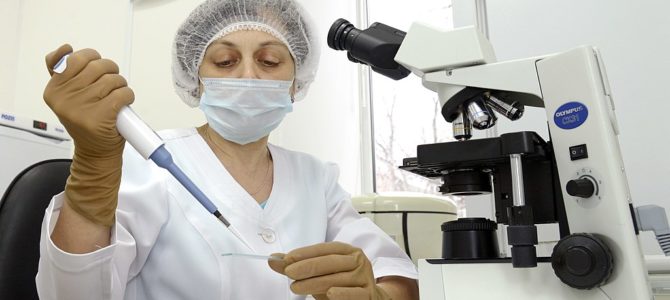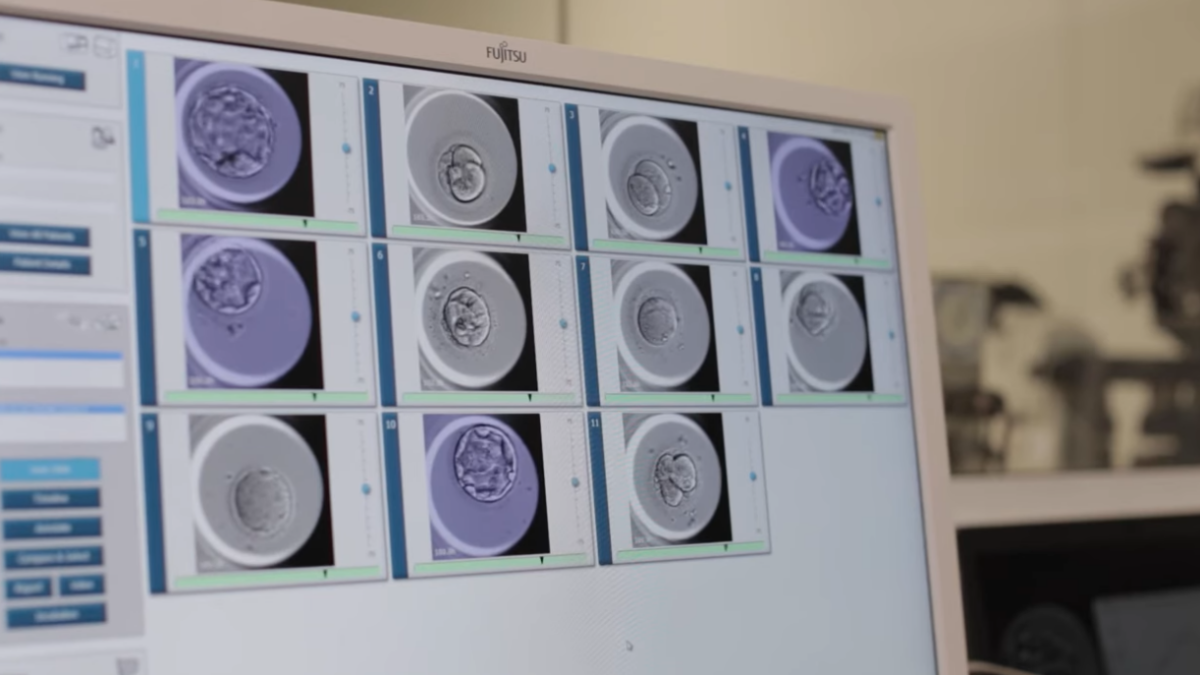
News emerged last week that Chinese scientist He Jiankui had broken new ground scientifically and ethically by using CRISPR technology to edit the genes of unborn babies. Groundbreaking scientific efforts are usually hailed as progress for humanity; innovation in ethics is more often considered a problem.
Both reactions are understandable. While new scientific developments have often improved the lives of people around the world, new developments in ethics typically involve getting around a moral barrier that mankind erected long ago—and for good reasons. The public’s reaction has been nearly universally to condemn He’s actions, but people have had a harder time putting the reason for their disgust into words.
The problem is that Western culture has retreated from its historical ideas of right and wrong. Without a grounding in religion or philosophy, people are left with feelings about proper behavior, but lack the grounding to explain those emotions. We feel, almost instinctively, that it is wrong to meddle with the DNA of an unborn human being, but we don’t know why we feel that way, nor can we articulate it.
So Let’s Work on That
An article from The Atlantic last week is a prominent example of the confusion. In it, author Ed Yong gives 15 reasons He’s actions are worrying, but all are ephemeral complaints, unmoored from any greater ideas about the right way to live.
Some of Yong’s points are more about the methodology than the ethics. In noting that He’s experiment did not address an unmet medical need, was not well-executed, and that there is no way to tell whether He’s work did any good, Yong raises serious points, but there is nothing especially ethically troubling about them.
All these concerns are cured by doing the same thing again, but better. Likewise, the complaint that the ultimate result is unclear is a valid one, but that is also a call for more experimentation, not less.
In discussing informed consent, Yong comes closest to touching on a piece of postmodern morality. Among many Western people on the libertarian right and neoliberal left, consent is the only value that remains beyond question. The recent furor over Hollywood’s “Me Too” scandals has only elevated this idea further, but as a matter of ethics, it falls short.
Had the parents of these unborn children been informed according to the highest standards of medical ethics and freely granted their consent, would scrambling their babies’ DNA have been ethical? No, the fig leaf of consent would not have covered the naked wrongness of He’s actions.
What’s Good Requires More Than Consent
The problem is that, disconnected from any greater ideas about what behavior is and is not acceptable, the question of consent lacks focus. If two people can consent to anything, does that mean nothing to which they consent, if it involves only the two of them, is immoral?
Not to mention that there are more than two people involved in each of He’s experiments: the doctor, the mother, the father, and the baby. One of these is incapable of consent and two more were allegedly duped, but even had it been possible to get everyone on board with the idea, would it ever be okay to meddle with unborn babies’ DNA?
Most people don’t spend all day thinking of metaphysics and higher goals. Many never spend much thought on philosophy in their entire lives. That’s fine: it’s not necessary that everyone do so. But for most of the history of western civilization, somebody has been thinking about it, including people who set the rules for important institutions of society.
There have been rules, historically, about what we do and why. Even if these rules and the theories behind them were not discussed in every living room and corner bar, they were discussed somewhere, and the effects of those discussions shaped society.
Many of those ideas, at least in the West, were shaped by Christianity, but a person did not need to be Christian (or any sort of theist) to have higher ideas about ethics. Just as the Founding Fathers often spoke vaguely of a Creator, or of Nature, people could base their ultimate source for ethics on something other than the God of the Judeo-Christian tradition. What matters is that the basis is something greater than themselves.
Higher Powers as a Source of Ultimate Truth
A higher power being the source of the higher good is important when new questions of right and wrong come about. It is easy for people—even decent, well-intentioned people—to decide that the right thing to do is the thing they really want to do anyway. Without external rules, it is easy to project our desires onto the world as ethical guidelines, and just as easy to shift those guidelines as the situation warrants. The temptation to make our feelings into rules is almost impossible to resist.
This is where external rules help us. Natural law informs our decisions even when we try to ignore it. Everyone who reads about designer babies has a feeling about it, and for most people that feeling ranges from discomfort to revulsion.
Part of it is the slippery slope that would quickly lead from eradicating genetic diseases to eliminating certain traits, or even certain races. That argument is real and deeply troubling, but it is not the only cause for concern. There is something in meddling with DNA in the womb that is offensive, deep in our bones.
That feeling of offense is the echo of the morality that has been fading away in the West. There is something about it we know is wrong. But when we try to explain why in the absence of any deeper understanding of the higher good, the best we can do is a listicle about it probably not working right and not filling out the proper forms.
A Society Adrift
That’s not a dig at Yong’s article in particular. It at least recognized the problem and explained the author’s impressions well. But it is also a reflection of a society that is morally adrift. There may be nothing in Plato’s “Republic” or the Christian Bible that says “don’t muck about with babies’ DNA,” not in so many words, but the ideas bequeathed us by those and other seminal works of morality tell us all we need to start with on the analysis of modern morality.
Grounding our thoughts in something greater than ourselves prevents us from unconsciously remaking our idea of righteousness into just a better version of our own feelings. In a 2004 interview, Senate candidate Barack Obama described sin as “[b]eing out of alignment with my values.” That is shocking to religious people, but did not gain much attention in the mainstream press, even when Obama ran for president four years later. That’s because that sort of relativism is now ordinary.
A person who believes in God would say that sin is something out of alignment with God’s values. Beyond even religion, any ethical system must place the definition of a wrong beyond the feelings of an individual adherent. When we say that introducing mutations to an unborn child is wrong, we should say so without regard to the forms and methods of doing it. We should oppose the thing itself, and for reasons that exist outside of our own feelings.









